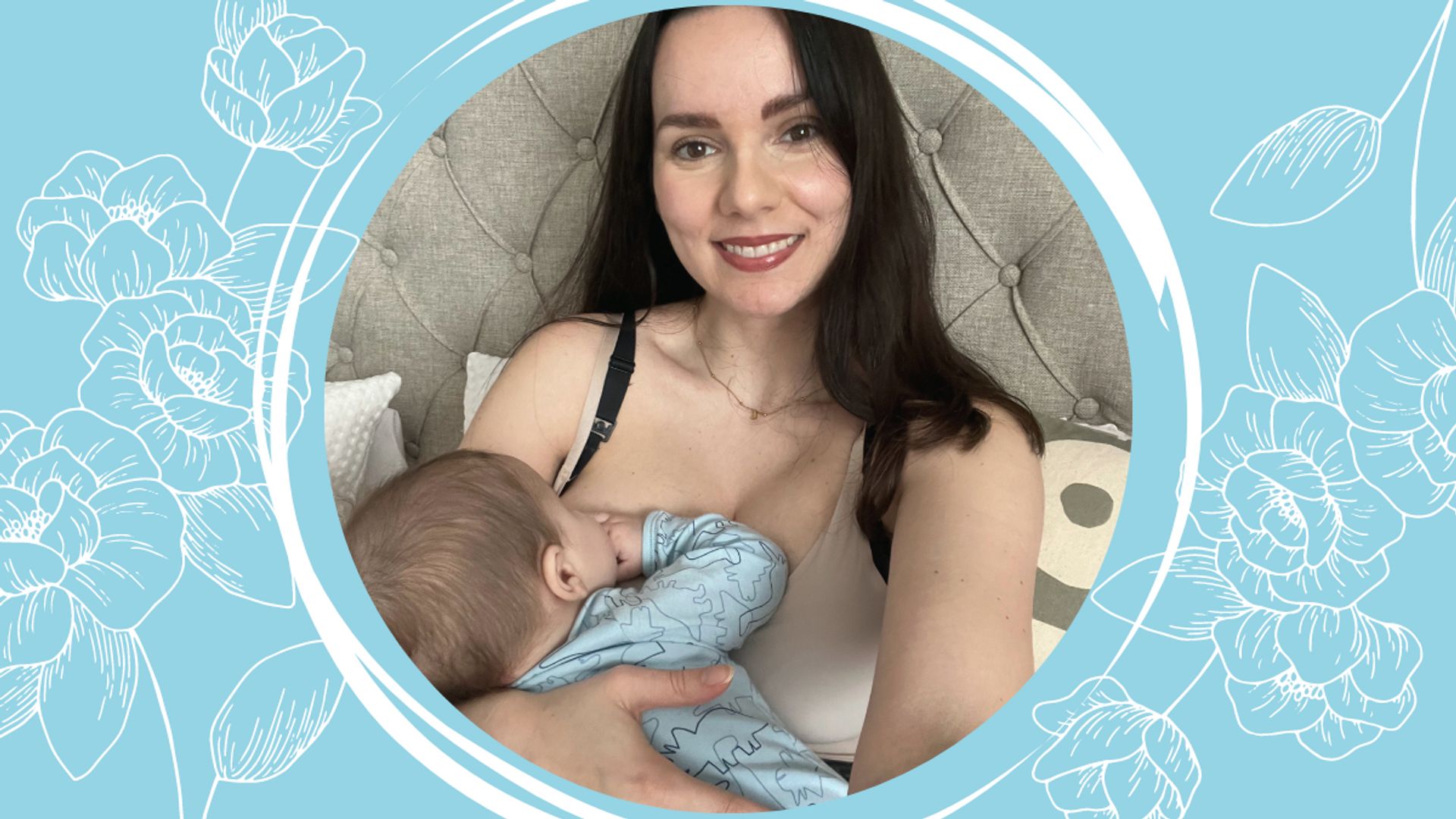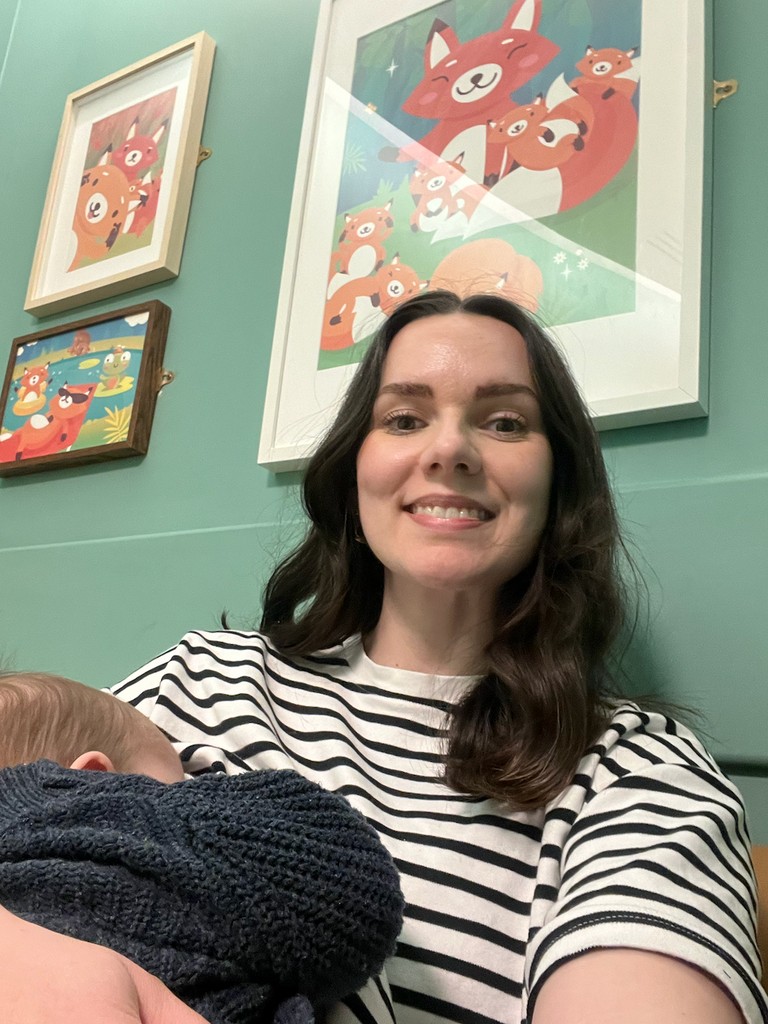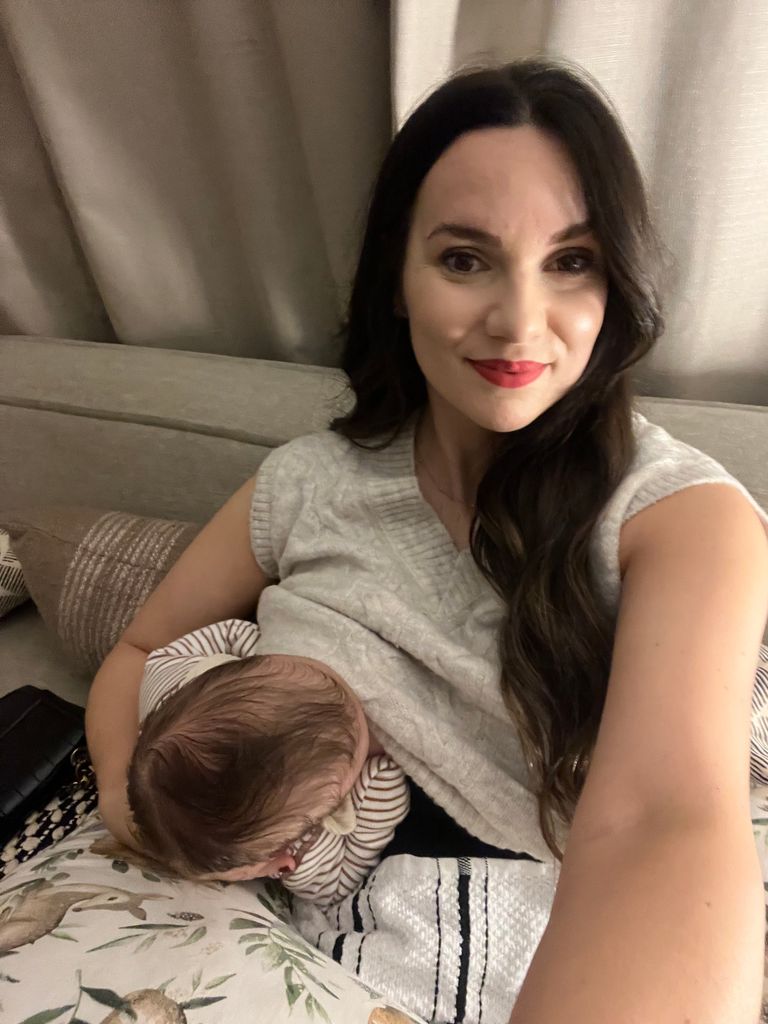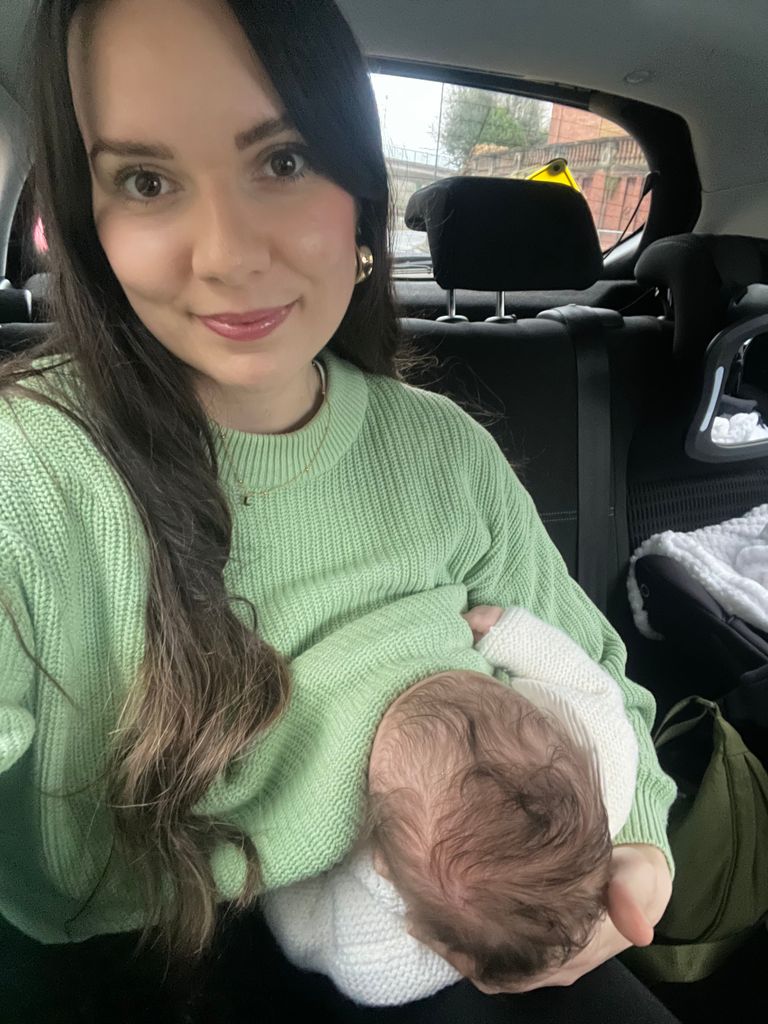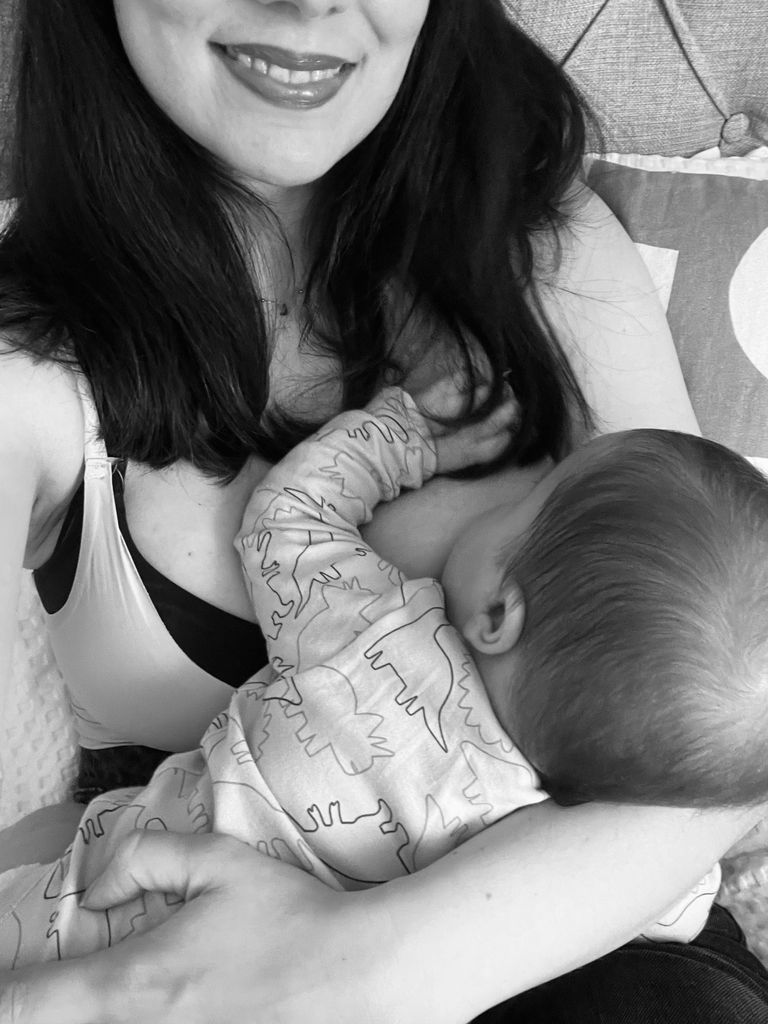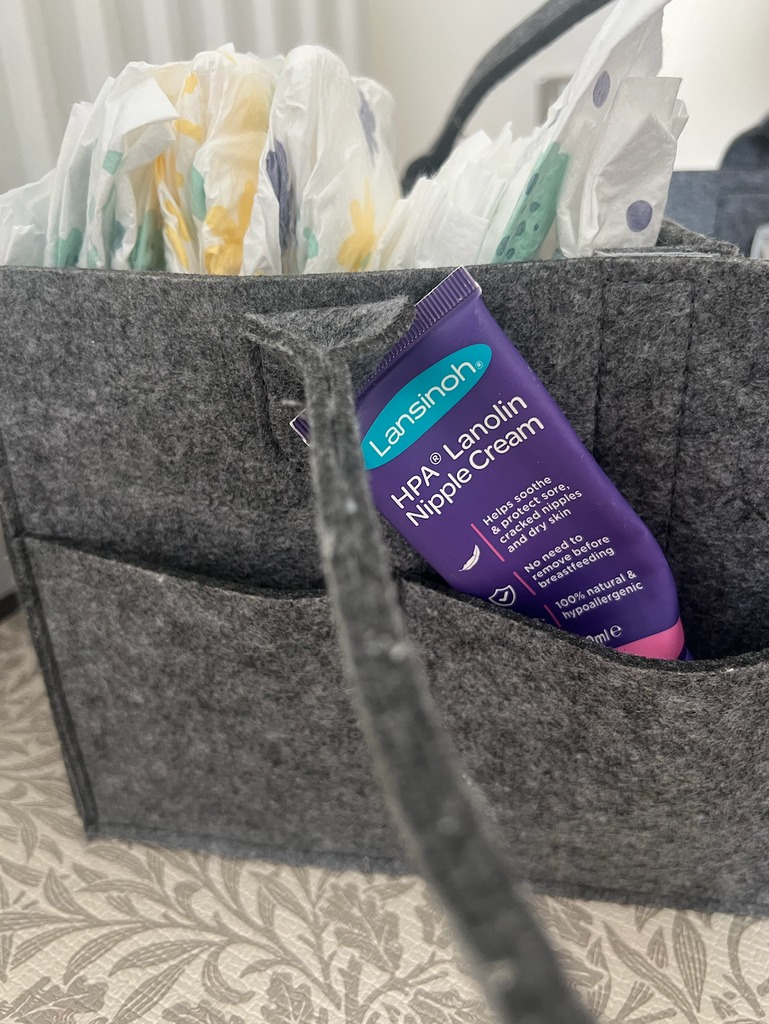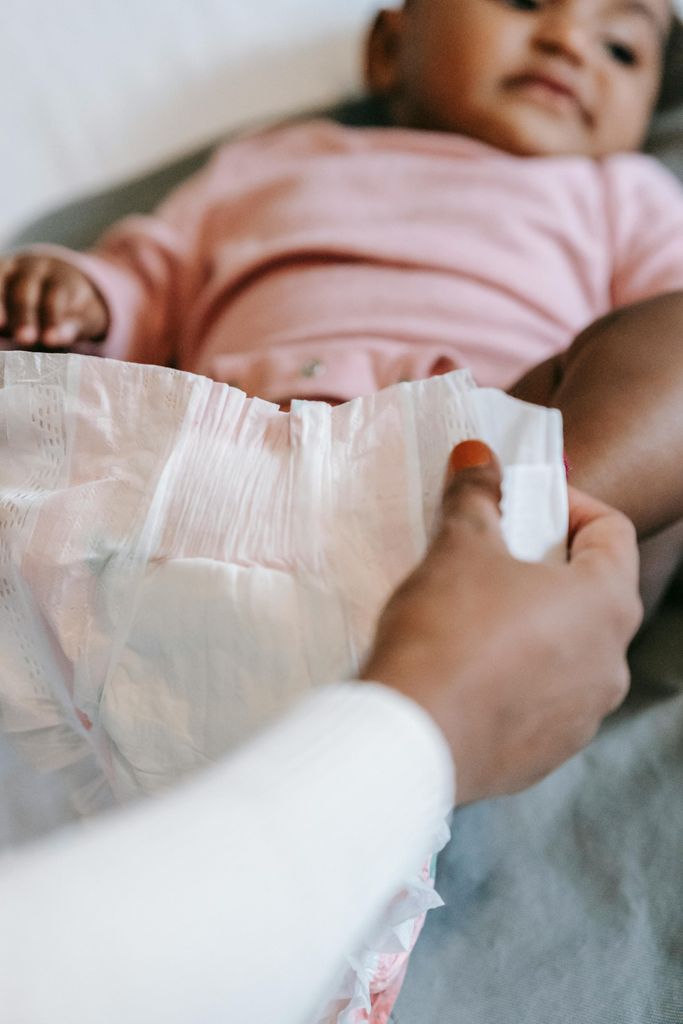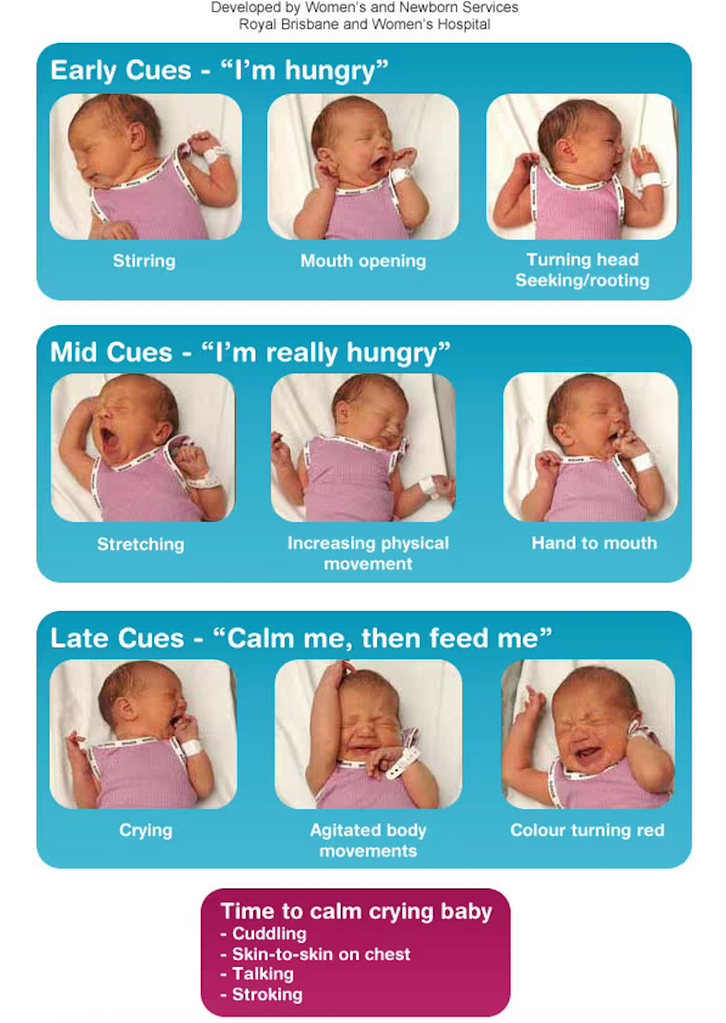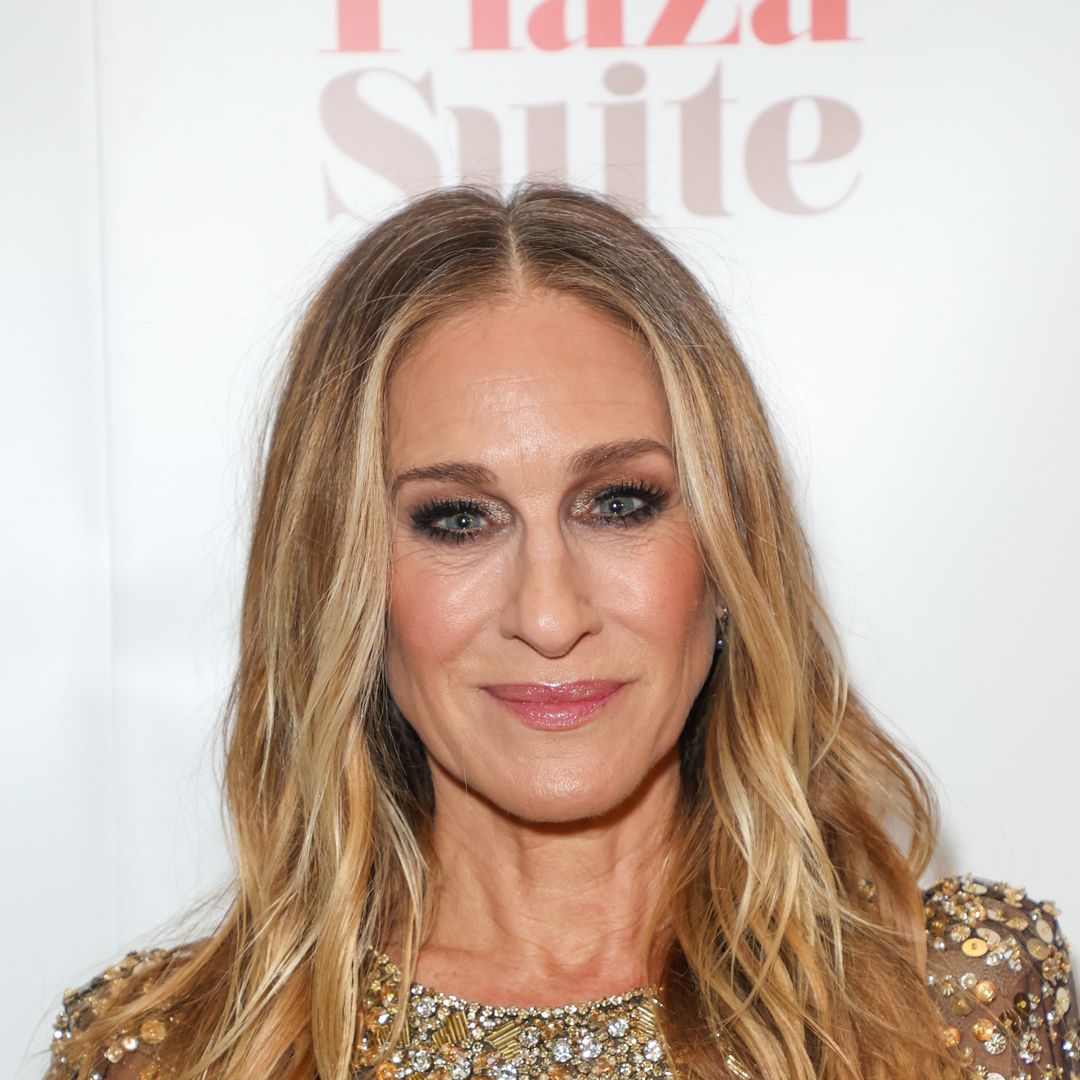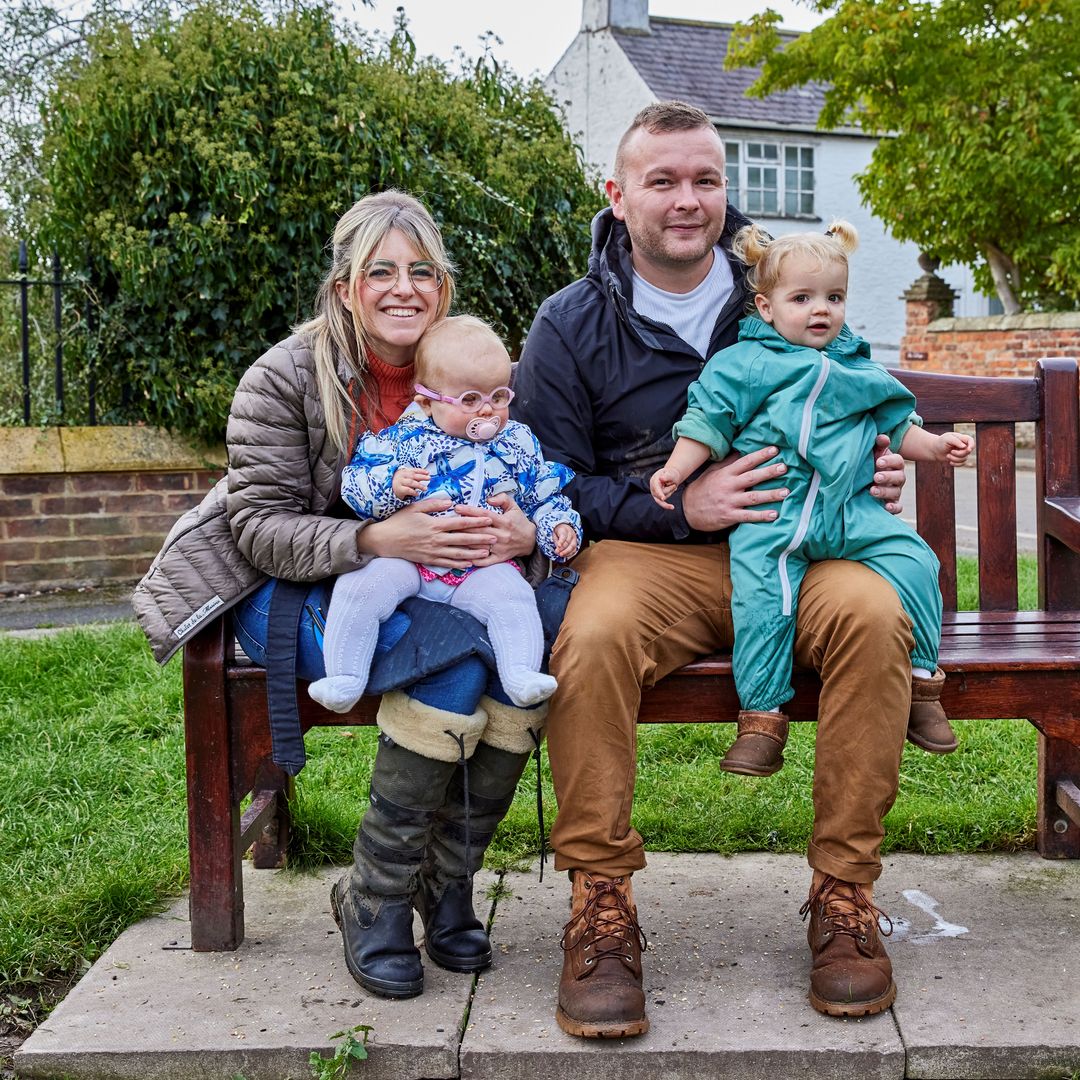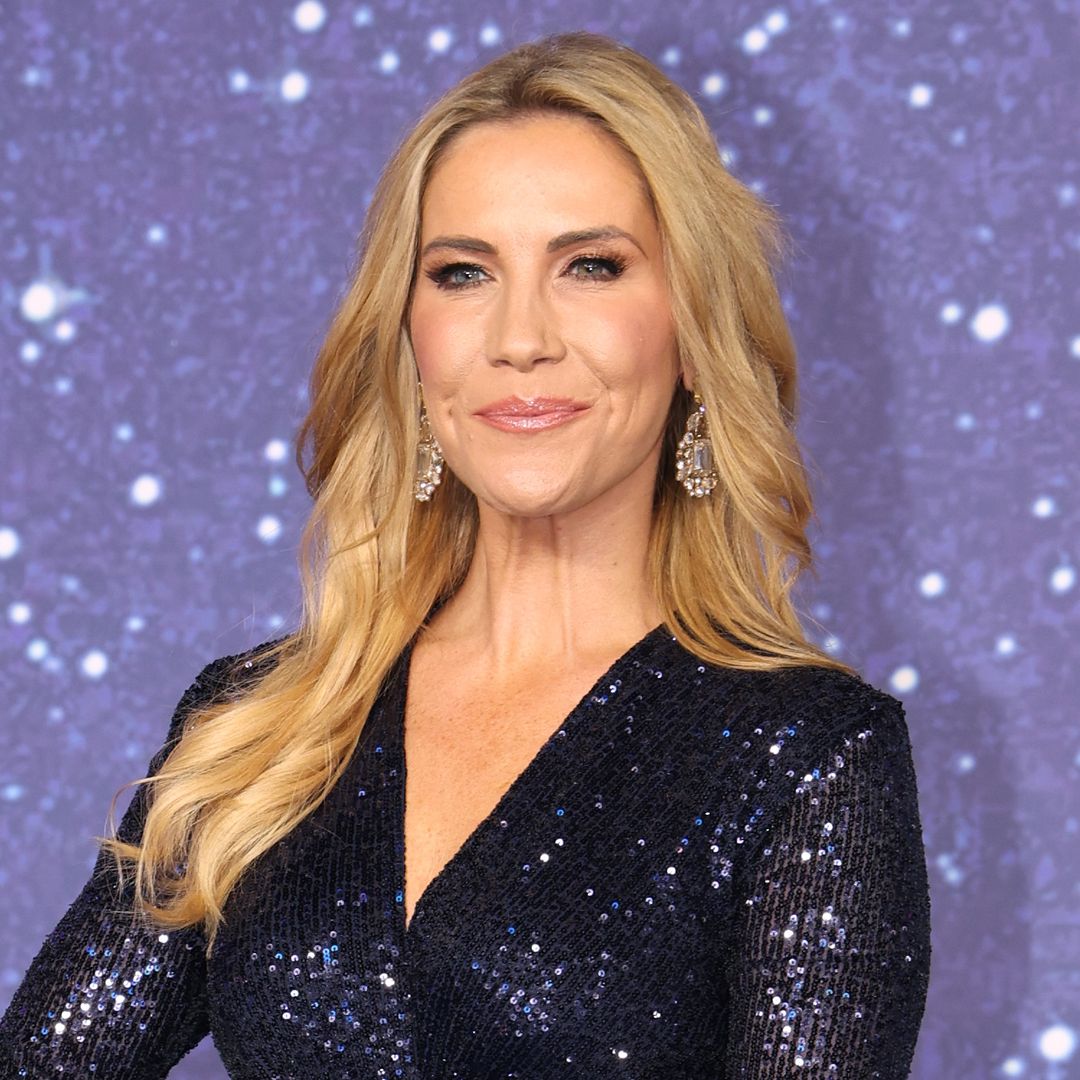Breastfeeding is recommended by the World Heath Organisation due to the overwhelming benefits of breastmilk, but many mums will tell you, it's not as easy as it looks! With that in mind, I'm going to share my personal experience along with some helpful advice I've learned along the way and tips from the experts to help you master this new skill.
My experience of breastfeeding
I'm a first-time mum who has experienced the highs and lows of breastfeeding. A disclaimer before I start - although I'm continually amazed by the wonders of breastfeeding for both mum and baby, I'm not here to preach. I'm of the belief that a fed baby is a happy one so please do whatever works for you personally, but here's my story...
I became a mum in 2023, giving birth to a beautiful baby boy. The moment after he was placed on my chest he latched perfectly. The midwife turned around to the student and said: "You'll never see that again!" I beamed with joy - it was just like I had imagined. Sadly the coming days, weeks and months were a different story. The latch became painful, and I ended up with mastitis (a nasty breast infection) on three different occasions! I was once even told by a specialist breast consultant that maybe it was the end of the road for my breastfeeding journey because of the recurring problems.
But I had what can only be described as a guardian angel on hand to help. My local children's centre runs a free baby feeding group. I began frequenting it to soak up all the advice from community breastfeeding expert Amanda. As well as Amanda's incredible help, I also had so many friends and family lending their support. One friend who had been through the same struggles was just a text message away during the 3am night feed hell.
With wonderful women around me and a very supportive partner, I’m proud to say my baby is now five months old, and I’m still breastfeeding him! We combi feed with some formula each day as well as breastmilk and it works really well for us. I’m out of the other side, and now I LOVE breastfeeding - I find it easy, convenient and so rewarding.
I had what can only be described as a guardian angel on hand to help
Here are the things I want to tell all new mums before they breastfeed…
It's natural, but it might not feel natural
It's something our bodies are made to do, but so is childbirth and that's still certainly no walk in the park. Breastfeeding requires time, effort and practice.
You'll feel like all you do is feed your baby
One of my biggest complaints during the early days of motherhood was that I was sat down too much. Hear me out! Genuinely, I hated it. Not only was it frustrating to not be able to make my own lunch or potter around the house, I actually had physical pain from being so sedentary. I couldn't believe how often my son did feeding cues, and I'd have to sit down again to feed him. At this stage, you may think you have a supply problem due to the frequency, but cluster feeding is so, so normal at the start.
Ask for help, and ask again
You're going to need it! Whether it's someone to make you a cuppa while you sit and feed your little one or someone to run to the shop for emergency breast pads. I was too proud to ask for help in the beginning, but I soon realised I was going to need all the support I could get.
Breathe
I read a hypnobirthing book (Hypnobirthing: Practical Ways to Make Your Birth Better) when I was pregnant, which massively helped me during labour but little did I know that the breathing techniques would come in so handy postpartum too. I used calm breaths to get through the initial latch pain (which happened very often in the early days).
I’m so proud of how I’m feeding my baby
Preparation is key
Feeding your baby in public can be very daunting at first, and my best advice is to think ahead. Choose the chair facing away from the majority of the room and have a muslin or cover-up to hand if you’re feeling self-conscious. Personally, I do neither of these things now because I'm so proud of how I’m feeding my baby.
Focus on your baby when feeding in public
Getting your little bundle of joy to latch on while it feels like the whole world is watching can be a nerve-wracking experience but I found that just focusing on my son and drowning out everything else around helped me keep my cool.
Order lots of vest tops
Wearing a vest under your clothes is a top tip for any winter baby mamas as lots of hoiking up your jumper will happen, and a vest top will ensure your midriff isn't out each time.
Don't forget to look after yourself
Breastfeeding is physically demanding as your little one is literally draining you! Although you may feel like they are your number one priority, you need to look after yourself if you’re going to be able to feed them. Did you know exclusively breastfeeding mums can need to consume up to an extra 500 calories a day?
Make a breastfeeding caddy
As I mentioned earlier, you're likely to be spending a lot of the time on your sofa. Once you start feeding, you do feel a bit trapped and for me the early days of breastfeeding involved very long feeds for my son, so having a breastfeeding caddy of essentials to hand was a lifesaver. What to include, I hear you ask? A water bottle for the crazy breastfeeding thirst, a few snacks in case you can’t move for a while, and not-so-fun things like breast pads and nipple cream.
Learn your pump beforehand
I made the major mistake of not getting any of my baby stuff out of the box before my son was born. Reading instructions at 2am when you’re desperate is not useful! If you’re going to be using a breast pump, I'd suggest getting to grips with it before your baby arrives - take it out of the box and read the instructions so it’ll be plain sailing when it comes to actually using it.
Get comfy
I mentioned that my son's feeds were rather long to begin with, which is why getting him and me into a comfy position was really important. I found a feeding pillow was really useful for this - I even took it to my mum's on Christmas Day!
I never thought it could be this easy and amazing, but I got there in the end
Lying down
When other mums told me they would simply lie down and feed their baby during night feeds, I was in disbelief. At the start, I was in so much pain that I would need to sit upright and stare at my son, praying he wouldn't move a millimetre and cause any more pain. Fast forward a few months and now that’s me. I lie down and even doze off slightly while feeding, totally pain-free. It’s such a game-changer! I never thought it could be this easy and amazing, but I got there in the end.
You decide
When my son was around two and a half months old, I thought I was going to have to stop breastfeeding and move him fully onto formula. Once we upped him to two formulas in the daytime, I began to experience no breast pain and so as the days went on, I decided to stick with what was working and not give up breastfeeding. But the main thing was that I came to the decision myself. It wasn't the doctor, the lactation consultant, my friends, my family or my partner saying what would be best, it was me. And listening to my body every step of the way has got me to my happy place. You've got this mama, you're doing amazingly!
Meet the experts
As well as my own experience, I'll be sharing some advice from Amanda (aforementioned guardian angel) and her equally fabulous colleague Sandra, who are breastfeeding experts from my local community. Amanda Lyon is an abm Breastfeeding Counsellor and a supporter with the Bristol Children's Centre Infant Feeding Team and Sandra Tanner is an abm Breastfeeding Counsellor, IBCLC and Bristol Children’s Centre Infant Feeding Team Lead.
Advice from the experts
Why is breastfeeding recommended by the NHS?
Amanda explains: "Breastmilk is the biologically normal food for babies, so it meets all of a baby's nutritional needs, protects them from infections and diseases and as a 'live' substance, constantly changes to adapt to a baby's growing needs for as long as it is given. In addition to this, it is always available at the right temperature and requires zero preparation and packaging – the ultimate convenience food, and great for the planet too.
"WHO recommends babies drink only breastmilk for the first six months to achieve optimal growth, development and health. Thereafter babies should be offered nutritious complementary foods and continue to breastfeed, into their second year if possible.
"But did you know that breastfeeding also has positive health outcomes for the breastfeeding parent? Like lowering the risk of breast and ovarian cancers, osteoporosis, and heart disease."
WHO recommends babies drink only breastmilk for the first six months to achieve optimal growth, development and health
Where can mums get help and advice when it comes to feeding?
Sandra says: "The primary people within the NHS who support you with any aspect of feeding your baby will be your midwife and health visitor. In addition, many towns and cities in the UK have a variety of other ways in which you can access support: infant feeding groups or breastfeeding cafes for example.
"There's The National Breastfeeding Helpline: 0300 100 0212, which is open every day 9:30am – 9:30pm.
"The UK also has four national charities who can provide evidence-based information about feeding and these are the Association of Breastfeeding Mothers (abm), La Leche League (LLL), National Childbirth Trust (NCT) and The Breastfeeding Network (BfN).
"All of this support is free, however some people choose to pay for help in their own homes, from a lactation consultant. You can find out more about this at lcgb.org.
"But don't forget family and friends. How did they feed their babies? Are you doing something similar? Other parents might have tips and tricks which might be useful in your particular situation."
How do you achieve a 'good latch'?
"Ah, the million-dollar question!" says Amanda. "It's worth remembering that the baby latches onto the breast, and it isn't always necessary for mum to do much other than get into a comfortable position so that baby can do what comes naturally. Although it may feel like it should come naturally, it can take time and perseverance to get to a place where mum feels confident, and baby feels relaxed. Sometimes a small adjustment can make all the difference.
FIRST PERSON: Why do I have to 'dress like a mum' just because I'm pregnant?
"If the baby is born at term and is healthy, they usually have a good instinct for how to find, latch and feed at the breast. The best way to tap into these instincts are to allow baby to be in full body contact with mum. Skin to skin can be a great way to encourage this too and is usually a great way to achieve a deep latch."
How will you know when your baby needs feeding and if they've had enough?
Sandra explains: "Most babies will show 'feeding cues' long before they start crying, things like licking their lips and sucking their fists. It is a good idea to feed them at this point rather than wait until they are crying. Whether breastfeeding or bottle feeding, the advice is to adopt a baby-led approach rather than feeding to a timed schedule.
"Breastfeeding is more than just a method of delivery milk to your baby, and babies will ask to 'feed' for all sorts of reasons, including the need to feel safe and warm. In the first few months it is as well to assume that the baby is hungry and feed whenever they seem unsettled as this will ensure that they drink enough milk, and that your body makes enough milk for the future. A funny (but useful) quote I heard from the dad of a breastfed baby was, 'If in doubt, get 'em out!'.
If in doubt, get 'em out!
"Your breasts may also signal that it's time to feed, before baby wakes. You might notice a tingling sensation in your nipples or that your breasts feel uncomfortably full. Breastfeeding is a two-way relationship, and it is fine to feed the baby because you need to, as well as because baby needs to.
"Nappy contents are a good guide when it comes to how well breastfeeding is going. Your midwives will talk to you about this and weigh baby approx. three times in the first two weeks to make sure that everything is going well.
"Another way of making sure that your baby is drinking well, is to listen for swallowing. Ask your midwife to show you what to look for, and if you are worried, always ask for help."
A disclaimer from the pros: Although we say mother, woman and breastfeeding in our advice, we understand that not everyone uses these terms. We support any parent with any aspect of feeding their baby.
